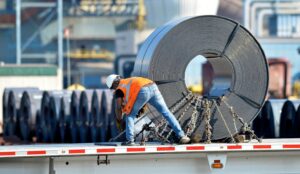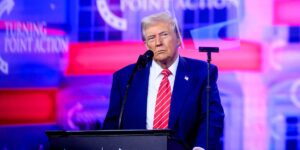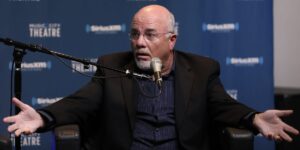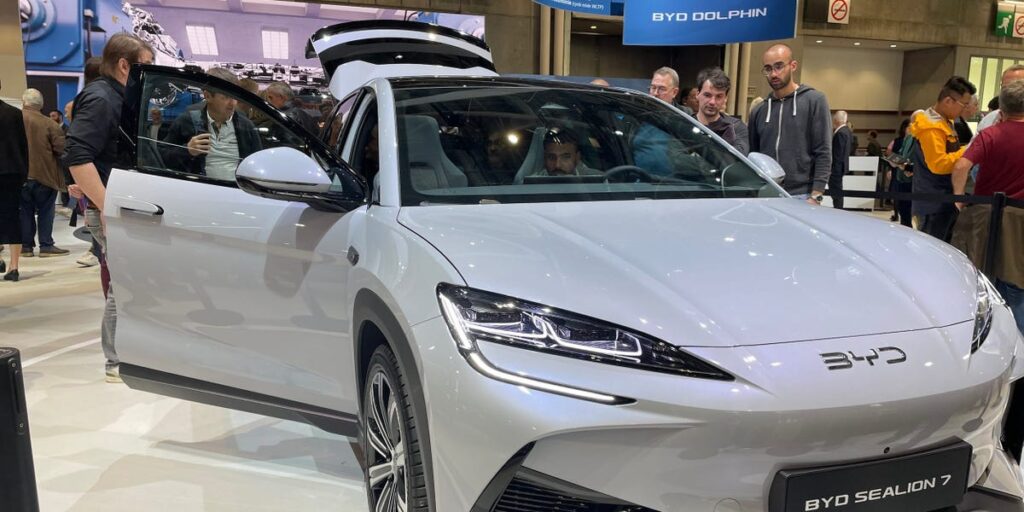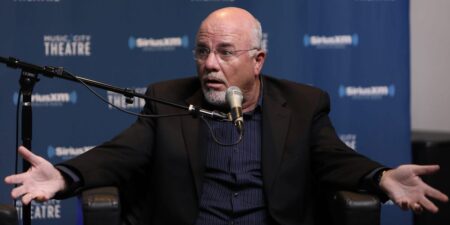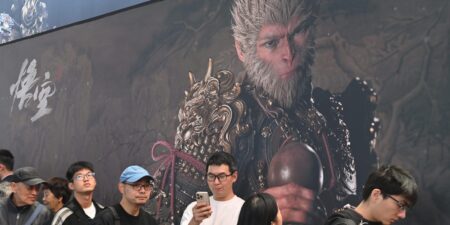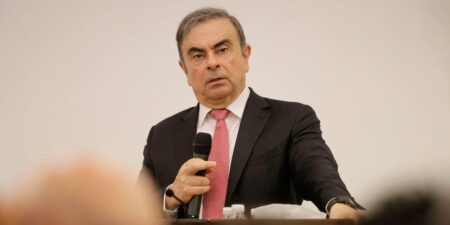- China’s EV giants left their European rivals in the dust at the continent’s biggest auto show.
- BYD, Xpeng, and Leapmotor unveiled new models at the Paris Motor Show despite looming tariffs.
- By contrast, European automakers fretted over stuttering EV sales and Chinese dominance.
Automakers flocked to Paris for Europe’s largest motor show this week — and China’s EV giants were the star attraction.
BYD, Xpeng, and Leapmotor showcased new vehicles at the Paris Motor Show, even as the European Union prepares to impose punishing tariffs on Chinese electric vehicles.
BYD unveiled the Sealion 7, a stylish electric SUV that the company says can charge from 10% to 80% in just 24 minutes. The company plans to launch the EV in Europe later this year.
The automaker, which aims to become Europe’s largest electric carmaker by 2030, showed off seven vehicles at its booth in Paris.
Crowds quickly formed around the high-tech Yangwang U8, an imposing hybrid SUV that BYD says is capable of floating on water for up to 30 minutes and turning on the spot like a tank.
The U8, which was making its European debut but is currently only sold in China, also comes with a drone that allows passengers to scout the road ahead.
The Chinese focus on technologically advanced features and smart cars was also apparent elsewhere at the motor show. The booth of Chinese EV firm Xpeng was dominated by the company’s flying car prototype, which hung from the ceiling.
CEO He Xiaopeng and co-president Brian Gu revealed the P7+ with camera-powered partially autonomous driving.
Executives also discussed the company’s investments in humanoid robots, flying cars, and AI hardware.
Speaking to reporters, Gu said that although the tariffs, which could see manufacturers face extra levies as high as 35%, would put pressure on Xpeng’s business model, the company was not backing down from its European expansion plans.
“We have a long-term and strong commitment to Europe, which is a region that we think is a core to our business. We will do whatever is necessary to be competitive,” he said.
European automakers despair
Among the local automakers at the event, the atmosphere was less positive.
Stuttering EV sales across the continent have meant some European manufacturers have scaled back their EV plans and are lobbying the EU to rethink emissions targets they say will cost them billions in fines.
Speaking at a summit on the sidelines of the motor show, BMW CEO Oliver Zipse said the mood in Europe’s auto industry was “trending toward pessimism.”
He warned that a planned 2035 ban on gasoline vehicles in Europe could “threaten the European automotive industry in its heart,” while the CEO of French automaker Renault said that it was clear that Chinese automakers had accelerated beyond their Western rivals.
“Europe is not the leader anymore. No one can put heads in the sand anymore — the center of gravity is now in China,” said Renault boss Luca de Meo, speaking at the same event.
Nowhere was that more apparent than at the booth occupied by Chinese EV maker Leapmotor.
After launching two new models in Europe last month, the EV startup unveiled the B10, an electric vehicle it is planning to sell globally from next year and which could cost 100,000 RMB ($14,000) in China.
While unveiling the new model, Leapmotor CEO Zhu Jiangming was joined by Carlos Tavares, the CEO of Jeep, Ram, and Fiat maker Stellantis.
The European automaker struck a deal with Leapmotor earlier this year to invest in the company and gained exclusive rights to sell its affordable EVs outside China.
Speaking at the automotive summit on Tuesday, Tavares said European automakers needed to accept the “harsh reality” that Chinese companies were now capable of making EVs for far cheaper than their European rivals.
He added that the Leapmotor partnership had been necessary for Stellantis to compete with the country’s electric vehicle giants.
“For us, the best way to compete immediately with the Chinese was to hop on their train, rather than letting it run us over,” Tavares said.
Read the full article here


